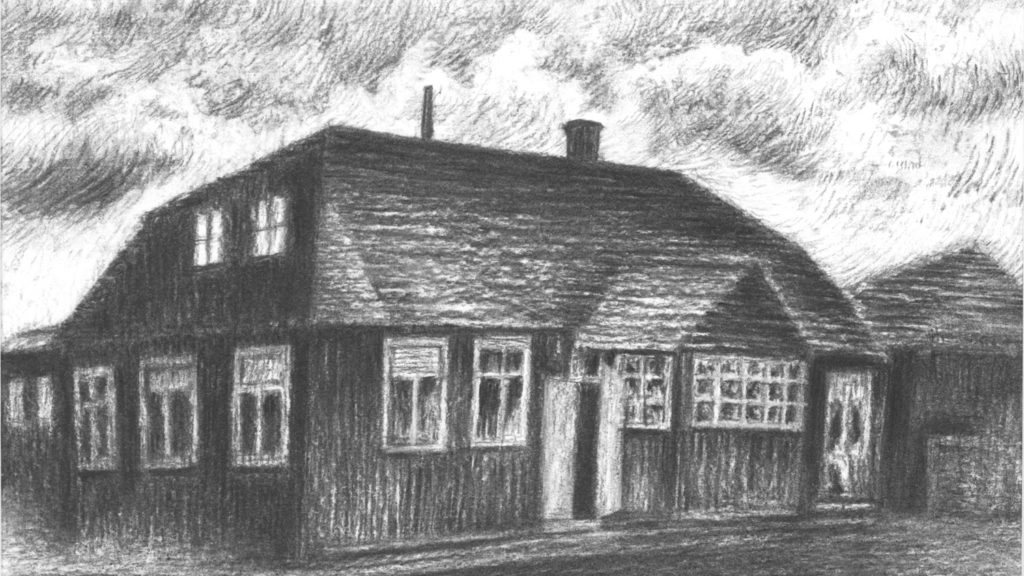Letters, Fall 2023
A Question of Authority
It’s inaccurate and fundamentally unfair to take the words of a character in a novel and attribute them to the author. Sadly, this is what Nadia Kalman elects to do in her review of my novel, The Dissident (“Problems with Authority,” Summer 2023). Writes Kalman:
This novel seems to be saying something like this: antisemitic persecutions usually don’t go too badly for us Jews, so instead of being narrowly, even selfishly, focused on our own safety and freedom, we should widen our gaze and devote our energies to more universal matters.
What kind of a person would argue that “anti-semitic persecutions”—such as the Dreyfus Affair, the Beilis case, and the Doctors’ Plot—are not so bad for the Jews? Certainly not I.
Kalman’s conflating of the author and a character, which results in a distortion of The Dissident, can be traced to one scene, where, in Moscow of 1976, the central character in the novel, a Jewish refusenik being leaned on by the KGB, realizes that he is in danger of becoming the target of antisemitic prosecution. (His concern is prosecution, not “persecutions,” per Kalman, who seemed to be needing a broader brush.)
For guidance, the young man turns to a friend, a historian, asking a very narrow question about a defendant’s chances of survival in antisemitic trials of yore. The historian, who is also Jewish, runs a quick survival analysis, fully acknowledging the limitations of his overview. The historian does not extol the virtues of antisemitic prosecutions or negate their impact. And he is not addressing the “quality of life” questions—i.e., the hardships faced by victims of miscarriage of justice.
Again, the historian is a fictional character—not me, the author.
I am not looking for a debate. There is no point in Kalman and me reaching agreement on our understanding of history. I can, however, assure the reader that The Dissident is rooted in a massive volume of historical research as well as friendships and collaborations with many Soviet dissidents, Jewish and not.
Kalman’s objections to The Dissident include my handling of a particular couple of scoundrels who happen to be Jewish. To that I can only point out that there is no such thing as a selective national liberation movement. Everyone who sought to emigrate and was denied an exit visa became a refusenik. Many refuseniks were wonderful people. There were also poseurs, thieves, fraudsters, thugs, murderers, and, notably, double agents.
Finally, at the time when The Dissident is set, the question of Jewish participation in human rights organizations was causing a schism among Jews in Moscow and within the Soviet Jewry movement worldwide. This schism is a crucial feature of The Dissident, and let the record show that—here I will clean up Kalman’s pejorative wording that I quote above—I, Paul Goldberg, do believe that we as Jews should be mindful of human rights for all.
Caring about the rights of others makes us more Jewish, not less.
Paul Goldberg
via email
Nadia Kalman Responds:
Never having met Paul Goldberg, I have no opinion of him as a person, and for that reason my review is only focused on his book and what it seems to be saying, which came across not in a single scene but rather through its plot and its narrative, in its footnotes, and in its choices about characters (e.g., the only observant Soviet Jews in the novel are axe murderers).
I agree with Mr. Goldberg about human rights.
Notes on Camp
Like Yeshua G. B. Tolle in his review of Sandra Fox’s The Jews of Summer (“Those Days Are Gone Forever,” Summer 2023), I am a graduate of Jewish camps, and I, too, remember bullying and fighting. But it isn’t as though that behavior is absent from other environments that children inhabit, nor is it absent from non-Jewish camps. Unfortunately, a lot of the bullying was directed at children who were nonconforming in gender or sexuality, which is something I believe would be less prevalent today.
Tolle also criticizes Fox’s book for falling into nostalgia, but I don’t think nostalgia is necessarily historically wrong or irrational. The postwar decades were a kind of Jewish Golden Age, where Jews had more opportunities open to them than previously in the United States—or at any time in Jewish history—and Jewish cohesion and knowledge was stronger than at the present. It was a time when kids at Yiddish camps (who were fortunate enough to have grandparents) probably had one to four Yiddish-knowledgeable grandparents or even parents. It was a time before many Jewish Americans began to feel conflicted about Israel. It was also a time when Jewish kids would not have learned about the Shoah from their regular school, so learning about it at camp filled in what would otherwise have been a gap in their educations.
I also think nostalgia for childhood is normal. Childhood is a time of innocence and joy. Camps, even when they have ideological and educational projects, are meant to be places where kids have fun and form friendships. For adults, looking back at the good parts of summer camp and not dwelling on the bad isn’t irrational. It’s psychologically healthy.
In addition to being a graduate of Jewish summer camps, I’m now a Jewish summer camp parent too. Yes, I hope my children learn more about Jews and Judaism at camp, even if a critic would call it indoctrination. Yes, I hope they learn songs they will remember and that they learn their prayers. Yes, I hope they form friendships. If there are bad things at camp, I hope they can learn to emotionally overcome them. And decades from now, when they are middle-aged and then old, I hope they have their own nostalgia.
Samuel July
via jewishreviewofbooks.com
Mailer and Israel
In “Another Round with Norman Mailer” (Summer 2023), Jesse Tisch asks if the author had “a secret Jewish life,” suggesting not only that he did but also persuasively arguing that one cannot come to terms with Mailer without understanding his Jewish identity.
It is curious that Tisch does not mention Mailer’s views on Israel, given that Mailer came of age at the same time as the Jewish state and especially since the themes he writes about—manliness, tough guys, and fighting back—are what Israelis call in Hebrew gavriut, once part and parcel of Zionism’s original desire to remake the Jewish man, a desire not unlike how Mailer saw his own struggle. As Alfred Kazin explained, and Tisch quotes, in Mailer “there appeared the toughie who hated the nice Jewish boy.”
I imagine that Tisch does not explore the issue of Israel in Mailer’s thinking because Mailer also studiously avoided the subject. In The Controversialist, Martin Peretz’s new memoir, the former editor-in-chief of the New Republic reports that at a dinner party at his house, Mailer was asked why he had never visited Israel, to which Mailer responded inanely that he would go after the Israelis “can produce another Entebbe”—the author’s way consciously or unconsciously of changing the subject.
Mailer had no interest in sharing his views of Israel. In the early 1970s, I was walking past his house in Provincetown with my father when Mailer came out to greet us. My father and Mailer knew each other from their work trying to launch a memorial research foundation honoring Robert Lindner, the author of Rebel Without a Cause, after the psychoanalyst’s untimely death in 1956. My father asked Mailer what he thought about Israel and whether he intended to write about it. I remember that Mailer studiously avoided the question, and we walked on.
Edward Abrahams
Washington, DC
Holocaust and Memory
The term “unitive time,” coined by Joseph Soloveitchik, comes to mind while reading Dara Horn’s review of The Last Consolation Vanished: The Testimony of a Sonderkommando in Auschwitz (“Come Here to Me, You Fortunate Citizen of the World,” Summer 2023). Unlike the “upstanders” about whom Horn writes, my generation, the first immediately after the war, was often brought up by painfully silent parents, some of whom screamed in their sleep. We could only try to imagine our mourned relatives and the ever-reverberating shock of the manner of their deaths.
As the review notes, Gradowski’s “style [of] literary enactment” contains elements both of the past and future as it weaves in quotes from biblical sources. Prophecy gave Gradowski and his generation some of the language to depict their firsthand experience. Verses like these, in Deuteronomy, accurately describe not only the experiences of the victims and survivors but also of the generations that followed: “Therefore shalt thou serve thine enemy . . . in hunger, thirst and nakedness. . . . He shall put a yoke of iron upon thy neck until he hath destroyed thee . . . a nation of fierce countenance who shall not regard the person of the old, nor show favor to the young” (Deut. 28:48-50).
Other verses immediately come to mind when seeing the shocking photo, in Horn’s piece, of Sonderkommandos at the site of a bone crushing machine. From Psalm 34:21: “He guards all his bones; not one of them was broken.” And the entire phenomenon can be summarized by Genesis 6:5: “And the Lord saw that the evil of man was great in the earth, and every imagination of his heart was only evil all the time.”
Larry W. Josefovitz
Beachwood, Ohio
I strongly agree with the thrust of Dara Horn’s article. Part of what it points to is the widening chasm between pop Holocaust education and genuine Holocaust scholarship. In the latter arena—which is not without its own warts—the related themes that Horn underlines are well known. The critique of redemptive or triumphalist discourse—what I call taking the “cide” out of genocide (and sometimes even the genus)—is also common. But genocide doesn’t sell feature films or curricula. Talking about the mass murder of identifiable people is not good for business. I mean that literally. Recently, I received a “rebranding memo” (their term) in which a “Holocaust center,” previously a “Holocaust memorial,” explained why it was removing the word “memorial” from its name. It is instead now named for the megadonor who paid for the new building. The institution is now called the “[Megadonor] Holocaust Center.” And so it goes.
Henry Greenspan
via jewishreviewofbooks.com
All Work and No Play?
In his exciting essay on his discovery of Moses Maimonides’s little Judeo-Arabic-Andalusi vocabulary list with its odd, apparently ungrammatical inflections (“Strange, I’ve Seen that Face Before,” Summer 2023), José Martínez Delgado speculates that “perhaps Maimonides was just playing around” when he scribbled his list. It is charming to think so, since the public Maimonides, while being very far from dull, was certainly all work and no play.
In his discussion of the afterlife in his commentary to the tenth chapter of Mishnah Sanhedrin, Maimonides compares the desire for a bodily afterlife to a king who wants to go back to playing ball with children after having attained the royal office. Who would want to return to the frivolities of the body after shuffling off this mortal coil? Only a fool, Maimonides suggests, and fools don’t get into Maimonides’s heaven. Since Professor Delgado finds a way to invoke Grace Jones’s 1981 disco classic, permit me an indulgence: when rereading Maimonides’s austere discussion of the world to come and a proper king who would never want to get back in the street and play ball, I am always reminded of A. A. Milne’s poem “King John’s Christmas”:
King John was not a good man— / He wrote this message out, . . . / “Forget about the crackers, / And forget about the candy; / I’m sure a box of chocolates / Would never come in handy; / I don’t like oranges, / I don’t want nuts, / And I HAVE got a pocket-knife / That almost cuts. / But, oh! Father Christmas, if you love me at all, / Bring me a big, red, india-rubber ball!”
Having read Delgado’s essay, I still cannot imagine Moses Maimonides dreaming about a return to his ball-playing days, if he had them (and after all, as the poem tells us, “King John was not a good man”), but I can now see him sitting idly in Fustat after a long day as both a consulting physician to the sultan and the ruling rabbinic authority of Egyptian Jewry, scribbling remembered words from his childhood in Cordoba.
Eve Adlerstein
Toronto, Canada
Suggested Reading

Notice Posted on the Door of the Kelm Talmud Torah Before the High Holidays
In the 1860s, Rabbi Simcha Zissel Ziv tried to found a new kind of yeshiva in which students would devote significant time to thinking about their moral lives.
Talking Like That
“Their voice sounds weird, like not a Jewish voice.” How newcomers learn the language and culture of Orthodox Judaism.

From King James to Koren
The new Koren Tanakh smoothly addresses some thorny questions of biblical translation, including this one: Are there dolphins in the Torah?

Life with S’chug
Einat Admony, who was raised by an Iraqi mother and a Persian father in Bnei Brak and now runs gourmet Middle Eastern fusion restaurants, is a new wave balaboosta.
Comments
You must log in to comment Log In